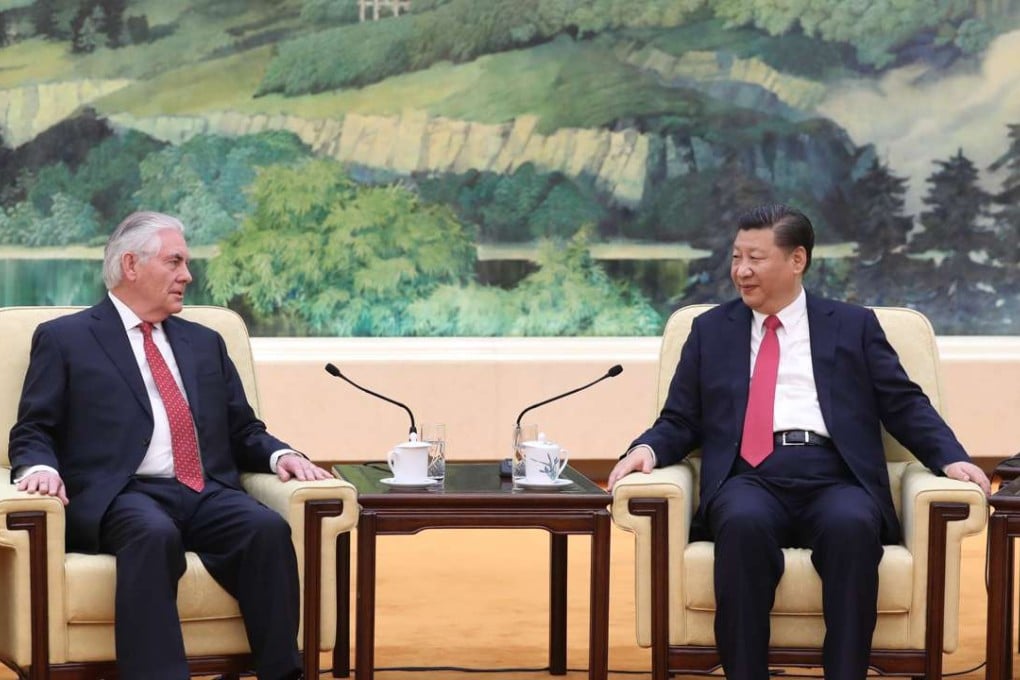Tillerson’s fence-mending trip to China ends in push for common ground
Xi Jinping and Rex Tillerson steer clear of hot-button issues but meeting in Beijing is seen as a missed opportunity for US to press China on trade

US Secretary of State Rex Tillerson wrapped up his first official visit to China on Sunday on a positive note – agreeing with President Xi Jinping to build constructive bilateral ties while managing trickier, divisive issues.
According to state media, Xi and Tillerson “exchanged warm words” during their meeting at Beijing’s Great Hall of the People yesterday, pledging to improve understanding and cooperation on the international stage.
Diplomatic observers said Tillerson’s fence-mending trip was “better than expected” and would pave the way for the first meeting between Xi and US President Donald Trump in the United States as early as next month.
The former oil executive’s maiden official Asian tour also sent a reassuring signal for Sino-US ties after their roller-coaster ride over sensitive strategic, security and trade differences since Trump’s election late last year.
“You have made a lot of active efforts to achieve a smooth transition in our relationship under the new era,” Xi told Tillerson.
“And I also appreciate your comment that the China-US relationship can only be defined by cooperation and friendship.”